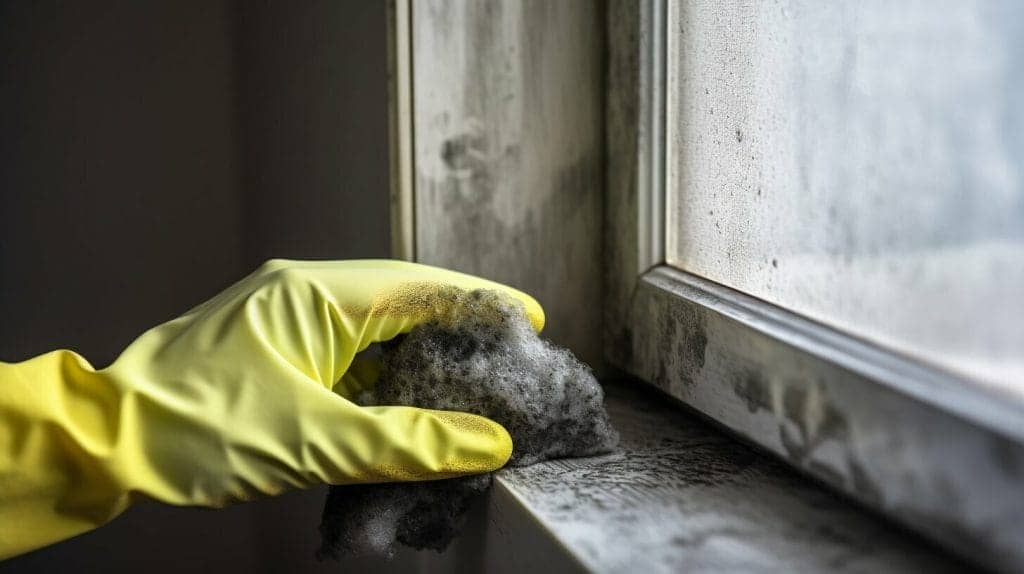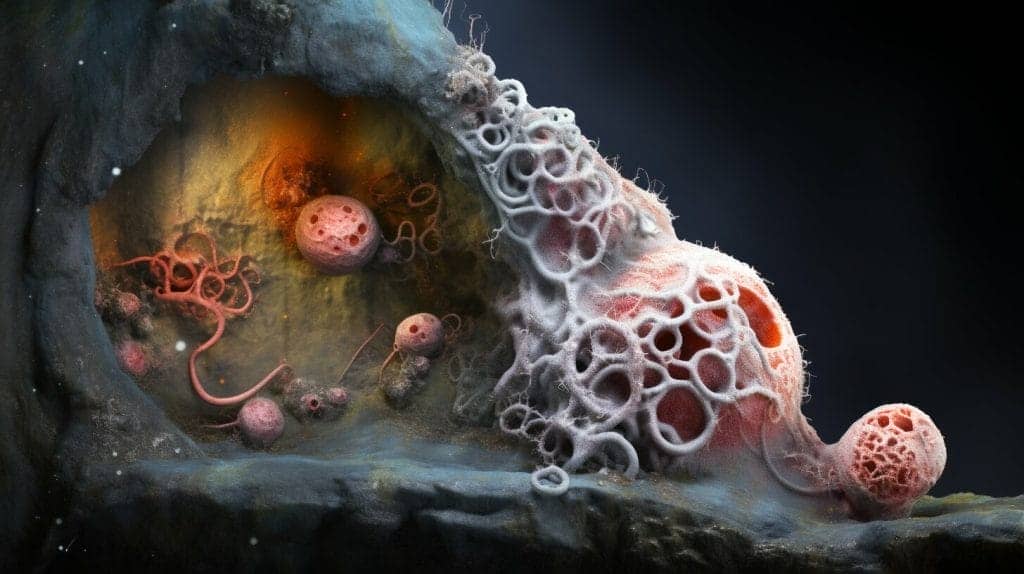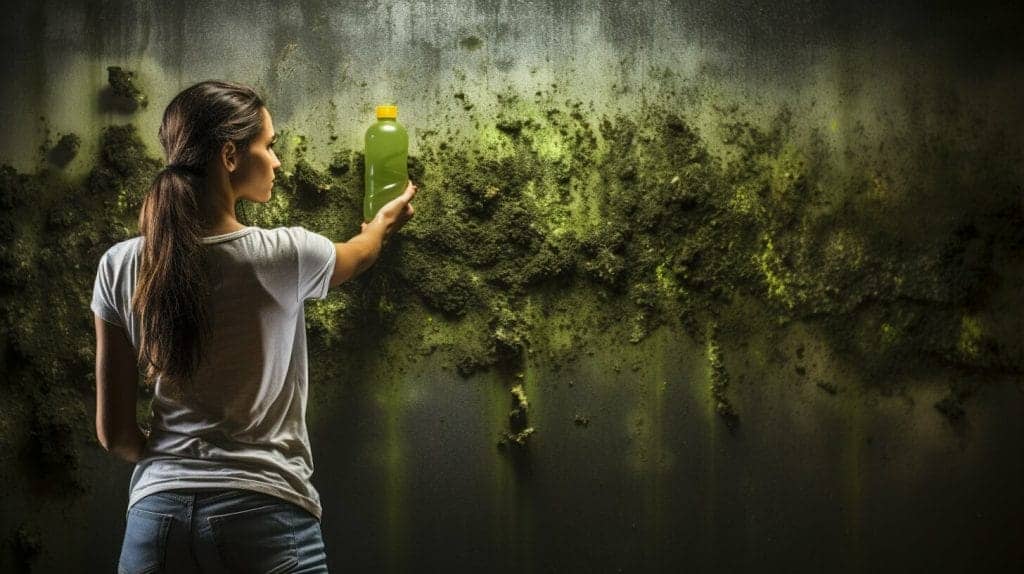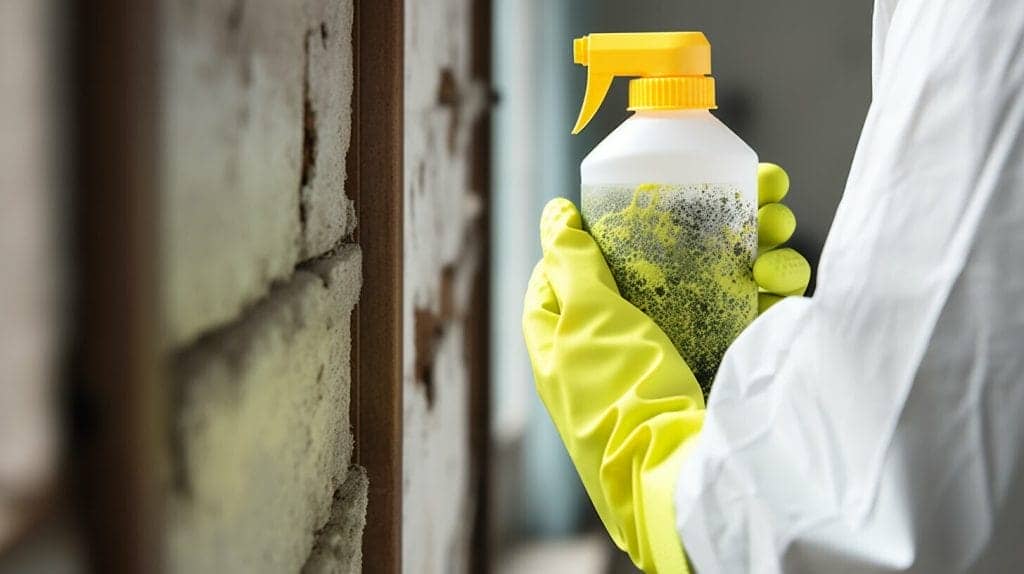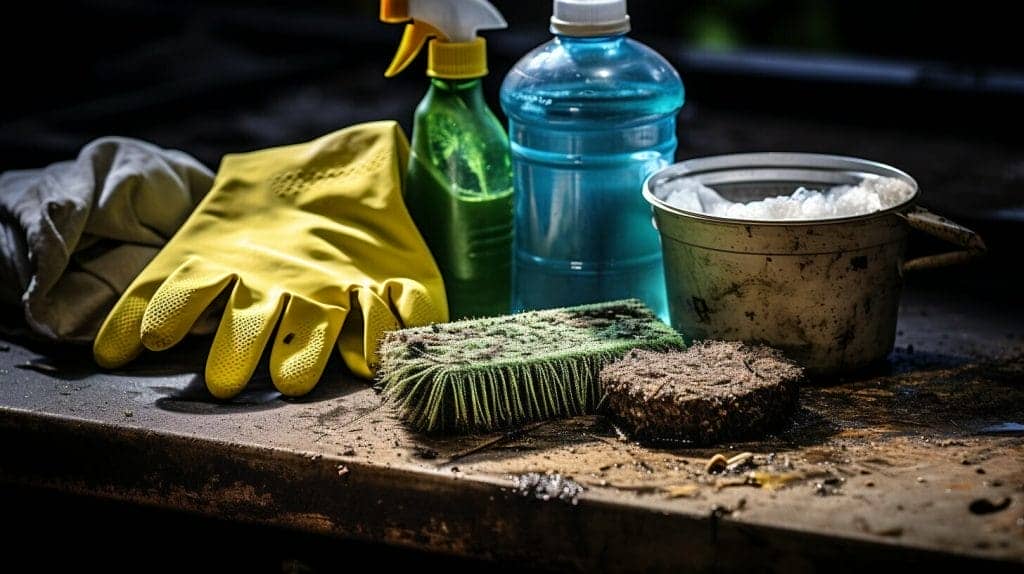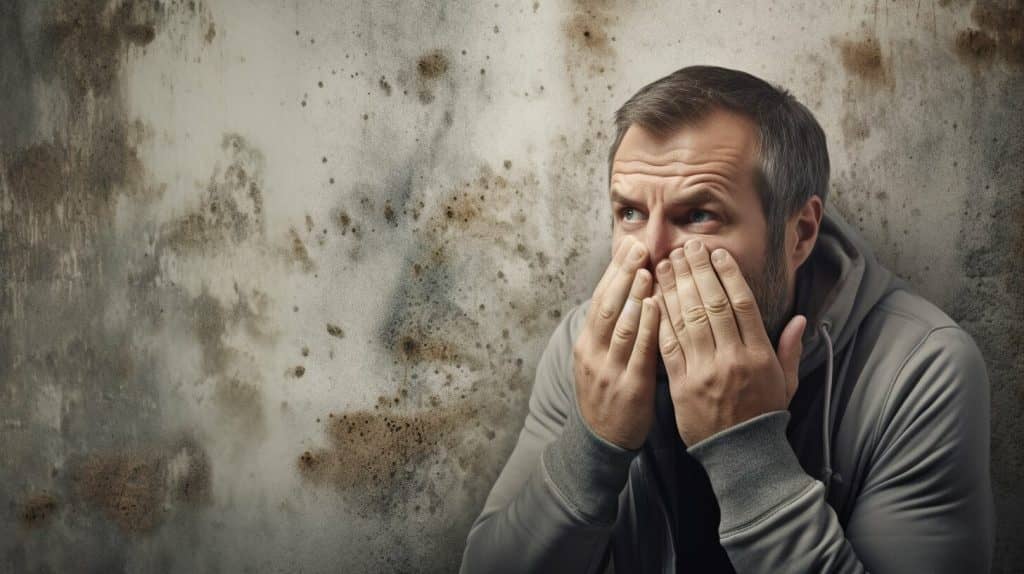Welcome to our comprehensive guide on the link between mold toxicity and vertigo. If you have been experiencing dizziness, spinning sensations, or loss of balance, you may be wondering if mold exposure could be the cause. In this article, we will explore the topic in-depth, covering everything from the symptoms of mold-related vertigo to the available treatment options.
Mold toxicity is a serious health problem that can have a range of negative effects on the body. It is caused by exposure to certain types of mold that produce toxic substances known as mycotoxins. While many people are aware of the respiratory symptoms that can result from mold exposure, such as coughing and wheezing, fewer realize that mold can also affect the balance and equilibrium of the body, leading to vertigo.
What is Mold Toxicity?
Mold toxicity, also known as mold poisoning, occurs when a person is exposed to high levels of mold spores and mycotoxins.
When mold spores are inhaled, they can trigger a wide range of symptoms, including respiratory problems, skin irritation, and neurological symptoms such as headaches, fatigue, and dizziness.
Vertigo is a common symptom of mold toxicity, and people who are exposed to mold are more likely to experience it than those who are not.
How Does Mold Toxicity Impact Vertigo?
Mold toxicity can have a significant impact on vertigo symptoms. While not everyone who is exposed to mold will experience vertigo, it is one of the most common symptoms of mold toxicity. Here are some ways in which mold toxicity can impact vertigo:
| Impact | Explanation |
|---|---|
| Disrupts balance | Mold toxins can affect the inner ear, which is responsible for balance. This can cause dizziness, lightheadedness, and even loss of balance. |
| Triggers migraine-associated vertigo | Mold exposure can trigger migraines, which are often associated with vertigo symptoms. |
| Causes inflammation | Mold toxins can cause inflammation in the body, which can in turn cause vertigo. |
Disrupts balance
Mold toxins can affect the inner ear, which is responsible for balance. This can cause dizziness, lightheadedness, and even loss of balance. If you have been exposed to mold and are experiencing these symptoms, it is important to seek medical attention to determine if mold toxicity is the cause.
Triggers migraine-associated vertigo
Mold exposure can also trigger migraines, which are often associated with vertigo symptoms. If you suffer from migraines and have been exposed to mold, it is important to be aware of the potential for vertigo symptoms to occur.
Causes inflammation
Mold toxins can cause inflammation in the body, which can in turn cause vertigo. This can happen when the immune system overreacts to the presence of mold toxins and triggers an inflammatory response.
Overall, the impact of mold toxicity on vertigo symptoms can be significant. If you suspect that you have been exposed to mold and are experiencing vertigo or other symptoms, it is important to seek medical attention. In the next section, we will explore the specific symptoms of mold toxicity and vertigo.
What are the Symptoms of Mold Toxicity and Vertigo?
Exposure to mold can lead to a variety of symptoms, including vertigo. Here are some of the most common symptoms of mold toxicity and vertigo:
| Symptom | Description |
|---|---|
| Vertigo | A feeling of dizziness or spinning |
| Fatigue | A feeling of tiredness or exhaustion |
| Headaches | Pain or pressure in the head |
| Brain Fog | Difficulty concentrating or remembering things |
| Nausea and Vomiting | Feeling sick to your stomach and possibly throwing up |
| Respiratory Problems | Coughing, wheezing, or shortness of breath |
| Eye Irritation | Redness, itching, or watering of the eyes |
| Skin Irritation | Rash, itching, or hives |
If you are experiencing any of these symptoms, it’s important to consider whether mold exposure could be the cause. Keep in mind that not everyone who is exposed to mold will experience symptoms, and the severity of symptoms can vary widely depending on factors such as the type of mold and the individual’s sensitivity to it.
Other Symptoms of Mold Exposure
In addition to the symptoms listed above, other signs of mold exposure may include:
- Musty or moldy odor
- Visible mold growth on surfaces
- Water damage or moisture issues in the home
If you notice any of these signs, it’s important to take steps to address the mold problem in your home as soon as possible.
How is Mold Toxicity Diagnosed?
Diagnosing mold toxicity can be challenging because symptoms can be similar to other medical conditions. Doctors typically start with a physical exam and medical history. This may involve asking questions about your symptoms, such as:
- When did your symptoms start?
- Do they occur after being exposed to mold?
- Do your symptoms get worse in certain environments?
- Do you have any other medical conditions?
- What medications are you currently taking?
If your doctor suspects mold toxicity, they may recommend additional testing. These tests may include:
| Test | Description |
|---|---|
| Blood test | A blood test can determine if you have an allergic reaction to mold. It may also detect elevated levels of certain antibodies associated with mold exposure. |
| Urine test | A urine test can detect mycotoxins, which are toxic substances produced by certain molds. |
| Imaging tests | Imaging tests such as X-rays or CT scans can help identify mold-related lung or sinus problems. |
It’s important to note that there is no single test that can definitively diagnose mold toxicity. Your doctor will likely use a combination of tests and your medical history to make a diagnosis.
When to See a Doctor for Mold-Related Vertigo Symptoms
If you are experiencing vertigo symptoms that you believe may be related to mold exposure, it’s important to see a doctor. Your doctor can help determine the underlying cause of your symptoms and recommend appropriate treatment options. You should seek medical attention if you experience:
- Severe or persistent vertigo
- Difficulty standing or walking
- Loss of consciousness
- Difficulty breathing
- Chest pain
- High fever
If you suspect that your home or workplace has a mold problem, it’s important to address it promptly to reduce your risk of mold-related health problems.
How is Mold Toxicity Treated?
If you have been diagnosed with mold toxicity, your doctor will likely recommend a multi-faceted approach to treatment. Along with addressing any underlying health conditions that may be contributing to your symptoms, your doctor may suggest lifestyle changes, medication, and other interventions to help alleviate your vertigo symptoms.
Lifestyle Changes: Making certain lifestyle changes can help reduce your exposure to mold and alleviate your symptoms. This may include:
- Cleaning your home: Regularly cleaning your home can help prevent mold from growing and spreading. Be sure to clean any areas where moisture may be present, such as bathrooms and kitchens.
- Reducing humidity: Using a dehumidifier can help control the humidity levels in your home.
- Avoiding moldy areas: Try to avoid areas with known mold problems, such as damp basements or areas with water damage.
- Avoiding certain foods: Some people with mold toxicity may need to avoid certain foods, such as those containing yeast or mold.
Medication: Depending on the severity of your symptoms, your doctor may prescribe medication to help alleviate your vertigo symptoms. This may include:
- Antihistamines: These medications can help reduce inflammation and relieve vertigo symptoms caused by an allergic reaction to mold.
- Corticosteroids: These medications can help reduce inflammation and relieve vertigo symptoms.
- Antidepressants: These medications may be prescribed to help manage anxiety and depression associated with mold toxicity.
Other Interventions: Your doctor may also recommend other interventions to help alleviate your symptoms, such as:
- Chelation therapy: This therapy involves the use of medication to remove heavy metals, such as those found in mold, from the body.
- Allergy shots: If you are allergic to mold, allergy shots may help reduce your sensitivity to mold and alleviate your vertigo symptoms.
- Acupuncture: Some people find that acupuncture can help alleviate their vertigo symptoms.
It is important to follow your doctor’s recommended treatment plan and to continue taking any prescribed medication as directed. With proper treatment, many people with mold toxicity are able to manage their symptoms and improve their quality of life.
How to Protect Yourself from Mold Toxicity?
If you have experienced vertigo symptoms related to mold toxicity, it is important to take steps to protect yourself from further exposure. Here are some practical tips you can follow:
- Keep your home dry: Mold thrives in moist environments, so it is important to keep your home as dry as possible. Fix any leaks as soon as you notice them, and use a dehumidifier to reduce humidity levels.
- Clean up mold promptly: If you notice mold growing in your home, clean it up as soon as possible. Use a solution of bleach and water to kill the mold, and make sure to wear protective clothing and a mask to avoid breathing in spores.
- Avoid humid areas: Try to avoid spending time in humid areas such as basements, attics, and bathrooms, as these are prime locations for mold growth.
- Improve ventilation: Make sure your home is well-ventilated to prevent moisture from building up. Use exhaust fans in the kitchen and bathroom, and open windows when the weather allows.
By following these tips, you can minimize your risk of mold exposure and reduce your chances of experiencing vertigo symptoms related to mold toxicity.
When to See a Doctor?
If you are experiencing vertigo symptoms that you suspect may be related to mold toxicity, it is important to see a doctor. A healthcare professional can help you determine the cause of your symptoms and recommend appropriate treatment options.
It’s important to note that some of the symptoms of mold-related vertigo can also be caused by other health conditions. Therefore, a doctor may need to conduct a variety of tests to rule out other possible causes before diagnosing mold toxicity as the cause of your vertigo.
Some of the tests that a doctor may recommend to diagnose mold toxicity and vertigo include:
| Test | Description |
|---|---|
| Blood test | A sample of your blood will be taken and tested for antibodies to mold. This can help identify whether you have been exposed to mold and whether it may be causing your symptoms. |
| Imaging tests | A doctor may recommend an MRI or CT scan to check for any structural problems in your brain that may be causing your symptoms. |
| Vestibular function tests | These tests evaluate how well the inner ear and brain are working to maintain balance and can help determine if your symptoms are related to an issue with your inner ear. |
If you suspect that mold toxicity may be contributing to your vertigo symptoms, be sure to find a doctor who is knowledgeable about the health effects of mold exposure. Some healthcare providers may not be aware of the link between mold and certain health conditions, so it may be necessary to seek out a specialist or to do research in order to find a provider who can help you properly address your concerns.
FAQs About Mold Toxicity and Vertigo
Here are some frequently asked questions about mold toxicity and vertigo:
Can mold toxicity cause vertigo?
Yes, mold toxicity can cause vertigo. Exposure to mold can lead to a variety of symptoms, including dizziness, headaches, and vertigo.
What are some mold-related vertigo symptoms?
Some mold-related vertigo symptoms include a spinning sensation, feeling off-balance or unsteady, and difficulty focusing.
How can I prevent mold from growing in my home?
To prevent mold growth in your home, make sure to fix any leaks or water damage promptly, keep humidity levels low, and ventilate areas prone to moisture, such as bathrooms and kitchens.
What should I do if I suspect I have been exposed to mold?
If you suspect you have been exposed to mold, it’s important to seek medical attention, especially if you are experiencing symptoms such as vertigo. A doctor can help diagnose and treat any health issues related to mold exposure.
Is there a link between mold toxicity and vertigo?
Yes, there is a link between mold toxicity and vertigo. Mold exposure can lead to a variety of symptoms, including vertigo, and those who are already prone to vertigo may be more affected by mold toxicity.
What kind of doctor should I see if I suspect mold-related health issues?
If you suspect you have mold-related health issues, it’s important to see a doctor who is knowledgeable about environmental health issues. An allergist or immunologist may be a good place to start, as they have expertise in diagnosing and treating allergies and immune system disorders.
Are there any lifestyle changes I can make to help alleviate my mold-related vertigo symptoms?
Yes, there are lifestyle changes you can make to help alleviate your mold-related vertigo symptoms. Avoiding exposure to mold, reducing stress, and practicing relaxation techniques such as meditation or yoga may be helpful.
What kind of medications can be used to treat mold-related vertigo?
The type of medication used to treat mold-related vertigo may depend on the severity of the symptoms. Antihistamines, decongestants, and anti-anxiety medications may be prescribed to help alleviate vertigo and other mold-related symptoms.
How can I reduce my exposure to mold?
To reduce your exposure to mold, you can take steps such as installing air purifiers, using mold-resistant products in your home, and cleaning and drying any water damage or moisture promptly. It’s also important to avoid areas with high levels of mold, such as damp basements or moldy buildings.
Dr. Francisco Contreras, MD is a renowned integrative medical physician with over 20 years of dedicated experience in the field of integrative medicine. As the Medical Director of the Oasis of Hope Hospital in Tijuana, Mexico, he has pioneered innovative treatments and integrative approaches that have been recognized globally for the treatment of cancer, Lyme Disease, Mold Toxicity, and chronic disease using alternative treatment modalities. Dr. Contreras holds a medical degree from the Autonomous University of Mexico in Toluca, and speciality in surgical oncology from the University of Vienna in Austria.
Under his visionary leadership, the Oasis of Hope Hospital has emerged as a leading institution, renowned for its innovative treatments and patient-centric approach for treating cancer, Lyme Disease, Mold Toxicity, Long-Haul COVID, and chronic disease. The hospital, under Dr. Contreras's guidance, has successfully treated thousands of patients, many of whom traveled from different parts of the world, seeking the unique and compassionate care the institution offers.
Dr. Contreras has contributed to numerous research papers, articles, and medical journals, solidifying his expertise in the realm of integrative medicine. His commitment to patient care and evidence-based treatments has earned him a reputation for trustworthiness and excellence. Dr. Contreras is frequently invited to speak at international conferences and has been featured on CNN, WMAR2 News, KGUN9 News, Tyent USA, and various others for his groundbreaking work. His dedication to the medical community and his patients is unwavering, making him a leading authority in the field.
Contreras has authored and co-authored several books concerning integrative therapy, cancer, Lyme Disease and heart disease prevention and chronic illness, including "The Art Science of Undermining Cancer", "The Art & Science of Undermining Cancer: Strategies to Slow, Control, Reverse", "Look Younger, Live Longer: 10 Steps to Reverse Aging and Live a Vibrant Life", "The Coming Cancer Cure Your Guide to effective alternative, conventional and integrative therapies", "Hope Medicine & Healing", "Health in the 21st Century: Will Doctors Survive?", "Healthy Heart: An alternative guide to a healthy heart", “The Hope of Living Cancer Free”, “Hope Of Living Long And Well: 10 Steps to look younger, feel better, live longer” “Fighting Cancer 20 Different Ways”, "50 Critical Cancer Answers: Your Personal Battle Plan for Beating Cancer", "To Beat . . . Or Not to Beat?", and “Dismantling Cancer.”



